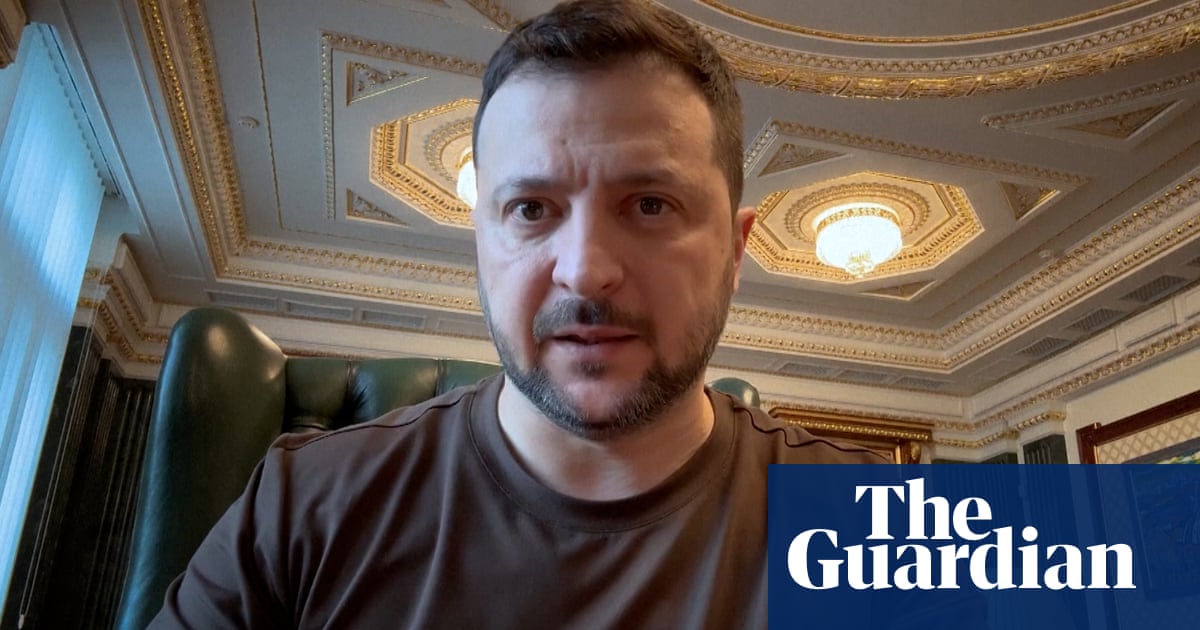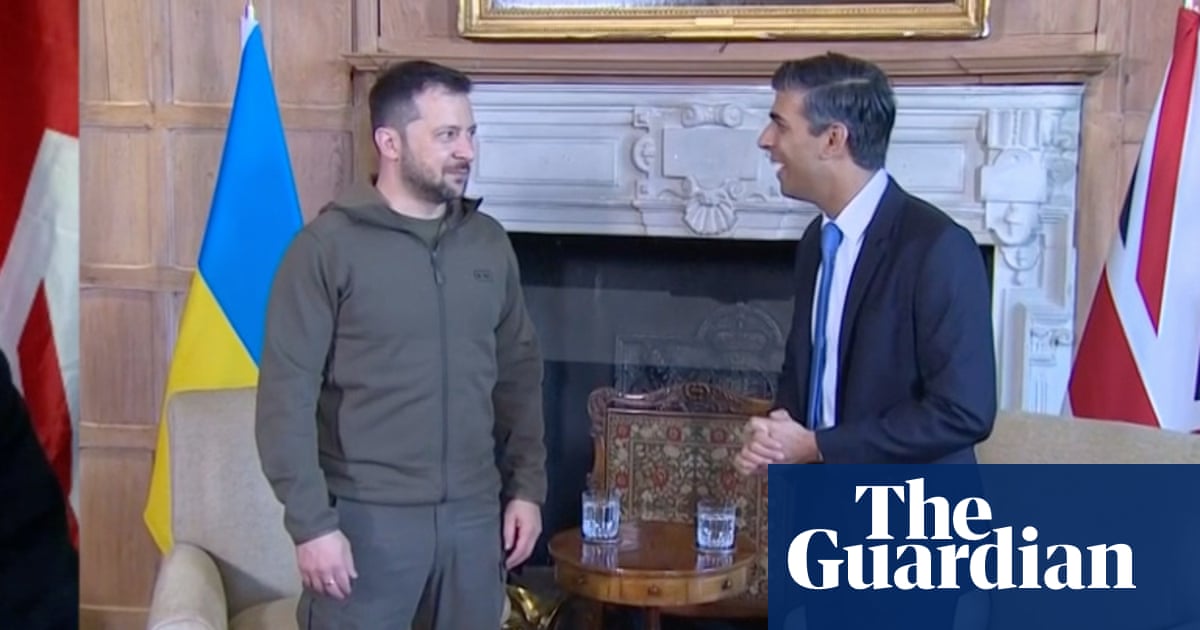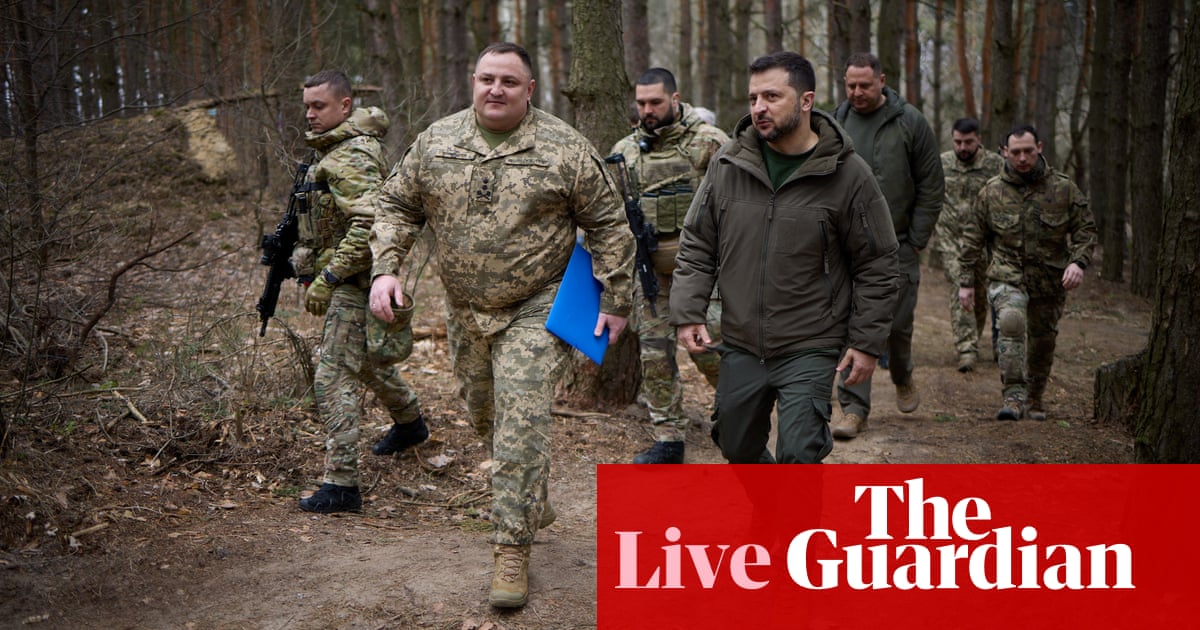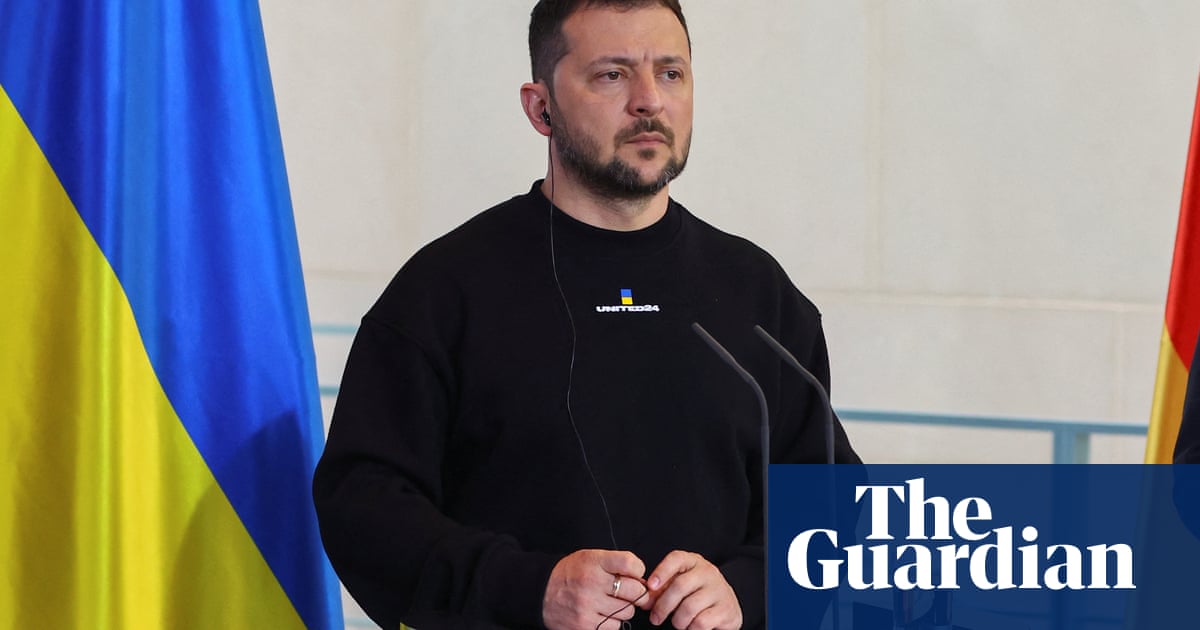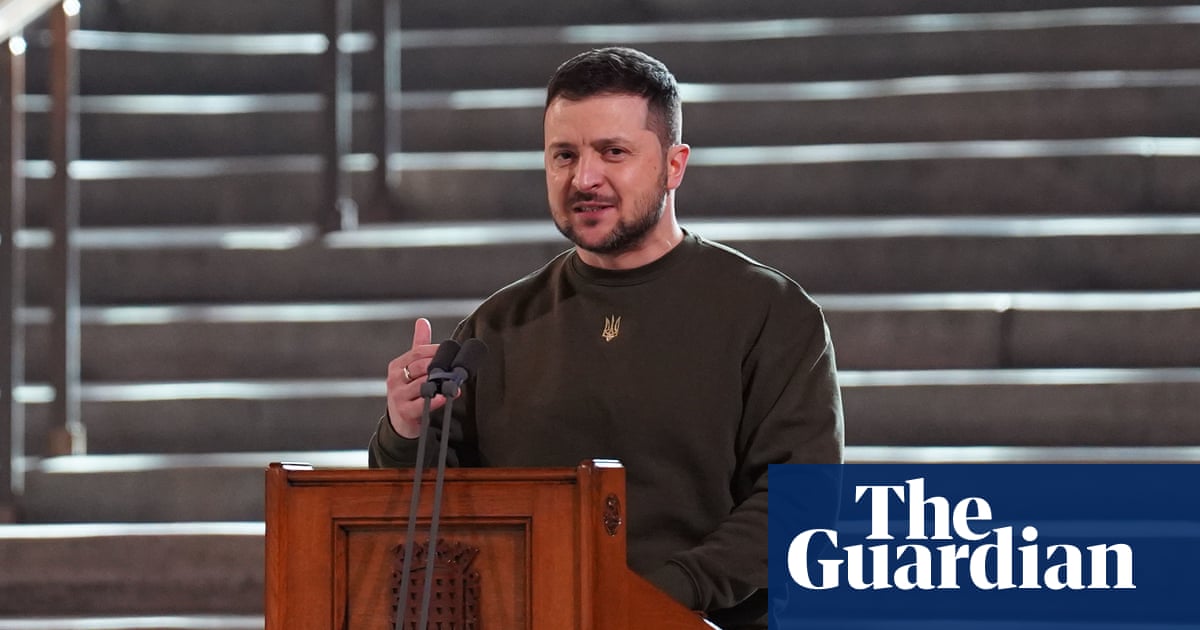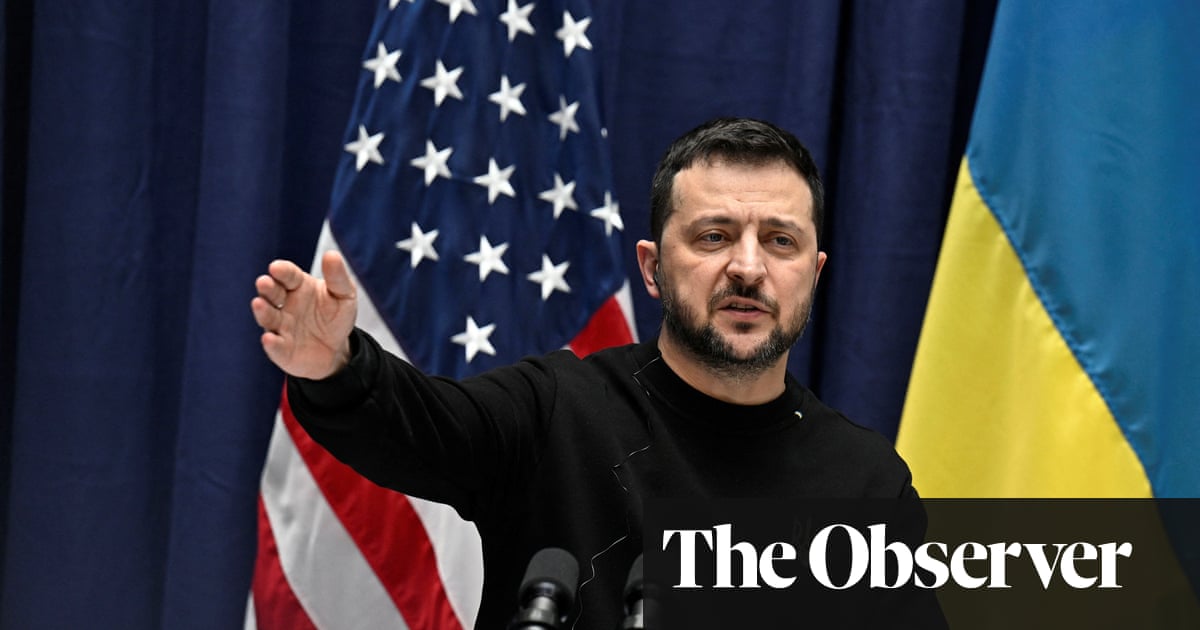
Volodymyr Zelenskiy issued a desperate plea for fresh arms on Saturday as his army commanders announced that Ukrainian troops were pulling out of the key eastern city of Avdiivka, handing Moscow its first major military victory since last May, just days before the second anniversary of the Russian invasion.
Ukraine’s leader told the Munich Security Conference that the slowing of weapons supplies was having a direct impact on the frontline and was forcing Ukraine to cede territory.
“Keeping Ukraine in the artificial deficit of weapons, particularly in deficit of artillery and long-range capabilities, allows Putin to adapt to the current intensity of the war,” he said.
The retreat from Avdiivka hands the initiative in the conflict to Vladimir Putin, a month before rubber-stamp elections that will hand him another six years in office, and a day after the death of the leading Russian opposition politician Alexei Navalny.
Referring to the US Congress’s decision to call a two-week recess instead of voting on a $60bn military aid package, Zelenskiy warned that “dictators don’t go on vacation”.
“Hatred knows no pause,” he said. “Enemy artillery is not silent due to procedural troubles. Warriors opposing the aggressor need sufficient strength.”
Ukraine’s military announced in the early hours of Saturday that it was withdrawing forces from Avdiivka, a decision that has been regarded as inevitable for some time as Russian forces cut off the industrial city on three sides. “I decided to withdraw our units from the town and move to defence from more favourable lines in order to avoid encirclement and preserve the lives and health of servicemen,” said the newly appointed army chief Oleksandr Syrskyi in a statement.
Soldiers had raised concerns that Avdiivka could be “another Bakhmut” – the city that Ukraine defended fiercely last spring, but which ultimately fell after heavy losses.
Soldiers involved in the retreat painted a chaotic picture of risky and terrifying withdrawal, in which they were sometimes forced to leave wounded behind. A top army commander wrote on the messaging service Telegram that “a certain number of Ukrainian servicemen” were taken prisoner during the retreat.
Viktor Biliak, a soldier with the 110th Brigade, described earlier in the week how he and others had left a garrison in the south of Avdiivka. “There was zero visibility outside,” he wrote on Instagram. “It was just plain survival. A kilometre across a field. A group of blind cats led by a drone. Enemy artillery. The road to Avdiivka is littered with our corpses.”
Fewer than 1,000 civilians are left in the town, which was once home to 30,000 people and a sprawling coke plant. Close to the major city of Donetsk, which has been occupied since 2014, it has long been a fortified outpost, and has been the scene of intense fighting since October.
Ukrainian forces are under pressure along the length of the frontline as the anniversary approaches on 24 February, and in Munich, the mood at the conference was darkened by Zelenskiy’s sombre warning that Ukraine will lose without more long-range weapons, drones and air support.
The US Senate has approved a bill that allocates $60bn in new aid for the Ukrainian military. But it has been held up in the House of Representatives, which last week announced a sudden two-week recess. At a joint press conference with Zelenskiy, the US vice-president, Kamala Harris, said that Washington “must be unwavering” and that “we cannot play political games”.
Zelenskiy’s chief of staff, Andriy Yermak, said at a side meeting that everything depended on when Ukraine received further aid. “I am optimistic but the timing is critical,” he said. He was dubious that European aid, without sufficient US support, would be enough to prevent Ukraine ceding further territory.
Among the politicians present, there was frustration not just with US isolationists, but with Europe’s failure to turn its promises of extra ammunition into a reality. The Danish prime minister, Mette Frederiksen, said she did not understand why countries such as Germany and France that did have extra ammunition were not sending it to the frontline now. “The sense of urgency is simply not clear enough in our discussions,” she said. “We need to speed up and scale up.”
Addressing Navalny’s death in an Arctic prison, Zelenskiy said Putin was responsible. “Putin kills whoever he wants, be it an opposition leader or anyone who seems like a target to him,” he said.
On Friday, the Munich conference was rocked when Yulia Navalnaya, Navalny’s wife, addressed the conference hours after reports of his death broke.
Navalny’s press secretary, Kira Yarmysh, said investigators in the city of Salekhard had refused to release Navalny’s body to his mother, who had arrived there on Saturday morning.
Georgy Alburov, another ally, said that authorities wanted to prevent an independent autopsy by delaying the release of Navalny’s body.
Prison authorities claim Navalny “fell unconscious” during a walk at the IK-3 prison in the Yamalo-Nenets region where he was serving a 19-year sentence widely seen as politically motivated.
OVD-Info, a Russian NGO that monitors law enforcement, said that at least 359 people in 32 cities had been detained at vigils held in support of Navalny across Russia. Many had laid carnations at makeshift memorials under the eye of riot police.




